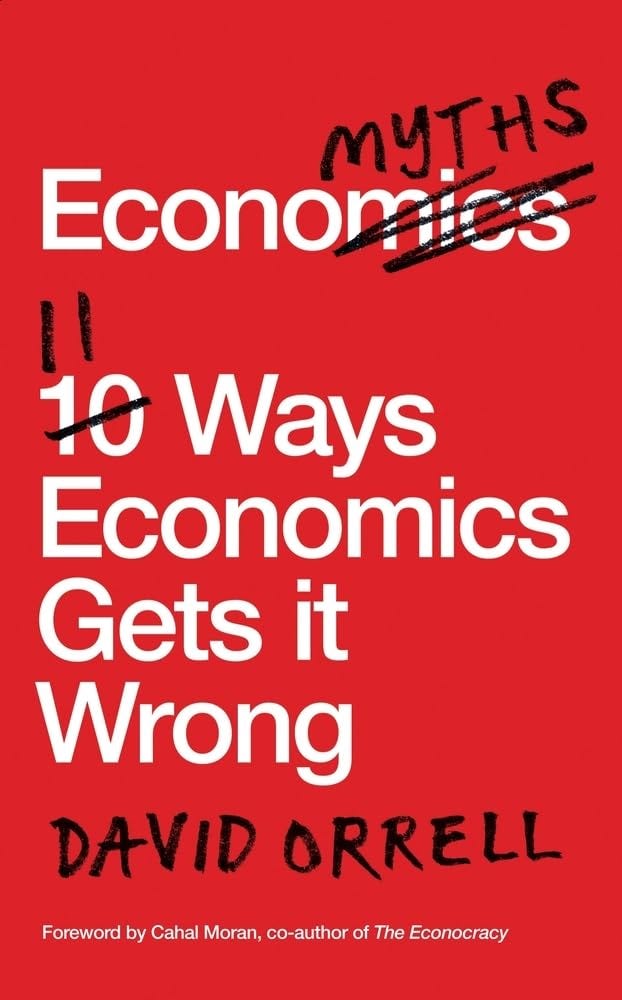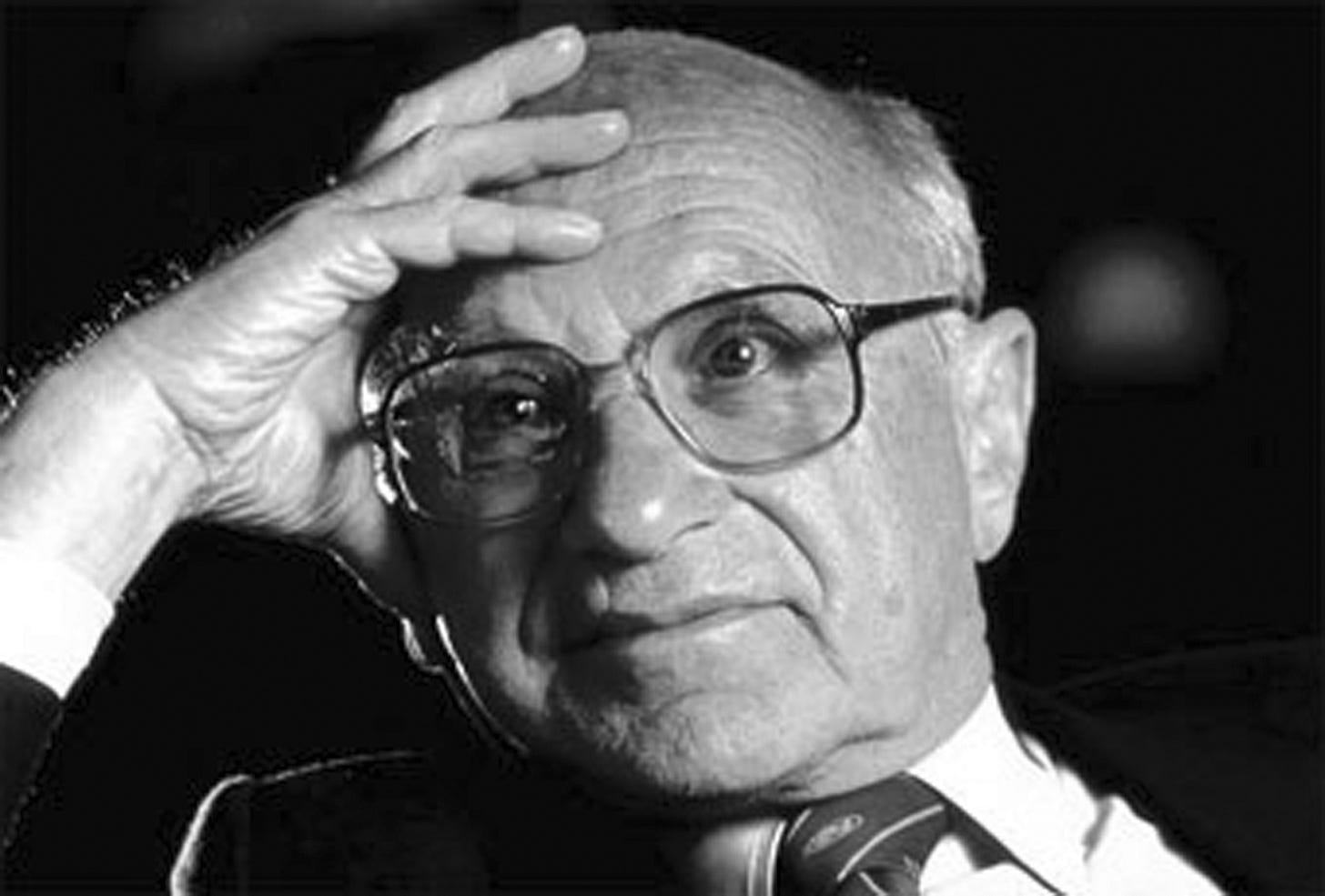Enterprises at a Primitive Stage of Evolution
The Better Way is Needed to Achieve Their True Potential
There’s a very good article in the Financial Times today, “Have America’s industrial giants forgotten what they are for?”
The issues it focuses on are certainly not limited to “America’s industrial giants,” they apply to many large corporations the world over. The big names mentioned are such well-worn case study examples that I almost cringe when see them being used yet again. And the issues themselves are equally old.
So why, if there is nothing really new in anything said in the article, am I suggesting it is a good article? There are two reasons. First it is a good summary and reminder of the issues. Second, it highlights the fact that the problems persist despite the hundreds of thousands of MBA graduates that business schools have produced over the many decades these issues have been recognised and talked about.
What can we conclude from the second point? I suggest we must conclude that business schools have been, and still are part of the problem. I came to that conclusion many years ago, and my view has been reenforced on many occasions.
A root cause of the problem is that most business schools emerged out of the economics faculties of universities. Read business school text books with this knowledge in mind and you find that much on the syllabus is based on the “Economyths,” explored by David Orell in his book of that name, published in 2010.
The simplistic economic models and the assumptions they are based on are deeply embedded in the ideas taught, and are almost never even questioned despite the student led movement for different approaches to teaching economics and the rise of the New Economics movement.
Business schools are still also heavily influenced by the ideas that stem from Frederic Winslow Taylor’s Principles of Scientific Management, published in 1911 and the thinking of the industrial era. The idea of the business as a machine is reflected in the mechanistic analogies used in the language used.
This also explains the obsession of management theory and practice with performance, efficiency and cost control. This is easy to spot in the evolution of management fads and fashions throughout the history of the discipline. Business Process Reengineering, Total Quality Management, Balanced Scorecards and many other examples are evidence of this.
The most famous management guru, Harvard Professor Michael Porter, himself an economist originally, has been focused on competition for almost half a century. It was centred around competition for the largest share of the ‘value chain,’ a concept he introduced in 1980.
Around the same time Porter was writing the economist Milton Friedman pushed the idea the purpose of a business was maximising value for shareholders.
These ideas still dominate, even though they have always had their critics and are increasingly discredited. The main criticism is repeated in the Financial Times article today with a quote from Dan Davies, an economist and author of The Unaccountability Machine. He says, “Anyone who’s . . . interacted with investor relations departments and big companies knows that there are people who . . . have shrunk their entire understanding of a business to quarterly earnings numbers versus consensus,” Maximising one measure of success — and ignoring information not related to that metric — distracts companies from innovation and proper consideration of the legitimate interest of other stakeholders.
The main comment I have to make about the article is that Boeing, Kodak, General Electric and other companies cited did not lose their way. Their mistake was to operate according to the ideas that have been, and still are, dominant in what is taught in business schools.
This last comments are partly based on the fact that some years ago I was asked to write a new textbook on strategic management by Oxford University Press. After almost two years or reading all the existing textbooks and developing a new textbook I pulled out of the project. It became clear that they wanted a textbook that continued to perpetuate the dominant ideas that continue to be taught, rather than offer what is needed i.e. a radically different book to replace the existing textbooks that are so dangerously outdated for various reasons, including those I have stated above.
My view, that a radically different book was, and still is, needed is partly based on the ideas expressed in two other books, “From Higher Aims to Hired Hands: The Social Transformation of American Business Schools and the Unfulfilled Promise of Management as a Profession” by Rakesh Khurana, the Marvin Bower Professor of Leadership Development at Harvard Business School.
Khurana explains how business schools ended up being operated based on a perspective that managers are merely agents of shareholders, beholden only to the cause of share profits. According to Khurana, we should not, therefore, be surprised at the rise of corporate malfeasance. And he argues the time has come to rejuvenate intellectually and morally the training of our future business leaders.”
The second of the other books is “Critical Systems Thinking and the Management of Complexity” by Michael C Jackson, the Founder and Former Dean of Hull University Business School, now a Professor Emeritus.
In the preface to his book he explains clearly why classical management education when he asks ….
“What help can decision‐makers expect when tackling the “messes” and “wicked problems” that proliferate in this age of complexity? They are usually brought up on classical management theory that emphasizes the need to forecast, plan, organize, lead, and control. This approach relies on there being a predictable future environment in which it is possible to set goals that remain relevant into the foreseeable future; on enough stability to ensure that tasks arranged in a fixed hierarchy continue to deliver efficiency and effectiveness; on a passive and unified workforce; and on a capacity to take control action on the basis of clear measures of success. These assumptions do not hold in the modern world, and classical management theory provides the wrong prescriptions.”
He goes on to say….
“This is widely recognized and has led to numerous alternative solutions being offered to business managers and other leaders, for example, lean, six sigma, business analytics, value chain analysis, total quality management, learning organizations, process reengineering, knowledge management, balanced scorecard, outsourcing, and enterprise architecture. Occasionally, they hit the mark or at least shake things up. It is sometimes better to do anything rather than nothing. Usually, however, they fail to bring the promised benefits and can even make things worse. They are simple, “quick‐fix” solutions that flounder in the face of interconnectedness, volatility, and uncertainty. They pander to the notion that there is one best solution in all circumstances and seek to reduce complex problems to the particular issues they can deal with. They concentrate on parts of the problem situation rather than on the whole, missing the crucial interactions between the parts. They fail to recognize that optimizing the performance of one part may have consequences elsewhere that are damaging for the whole. They often fail to consider an organization’s interactions with its rapidly changing environment. Finally, they don’t acknowledge the importance of multiple viewpoints and internal politics.”
To conclude, America’s industrial giants, industrial giants the world over, have not lost their way. It is simply that those who direct and manage them are operating according to the long-outdated management theories and practices they have been educated in. Unlike Rakesh Khurana and Michael C Jackson, few leading academics are honest enough to admit that this is the case, and are willing to push for change.
The consequence is an endless string of corporate crisis. And, worse than the large corporate crises, is the even larger problem of badly managed under performing businesses. “If we look at them in the light of their potential, most commercial corporations are dramatic failures – or, at best, underachieve. They exist at a primitive stage of evolution; they develop and exploit only a fraction of their capability,” said Arie de Geus in The Living Company: Growth, learning and Longevity in Business (1997). Arie was a senior executive at Royal Dutch / Shell for 38years.
Corporations, like all forms of enterprises, led by managers who have been trained in outdated management theories and practices, have not lost their way, they were misguided by the management education they receive, and continue to be misguided by it.
The Enlightened Enterprise Academy I founded is pushing for change. And in my book, The Better Way, and the programme of events related to it, I will be explaining in much more detail what changes are needed.
THE BETTER WAY
“The Better Way: Enlightened Enterprise” is a new series for The Salon, and links to a book project by Paul Barnett, Founder of the Enlightened Enterprise Academy.
The aim of the book is to support the establishment of a community of people who think, “there’s got to be a better way” to run businesses, organisations, governments, public services etc. FIND OUT MORE











